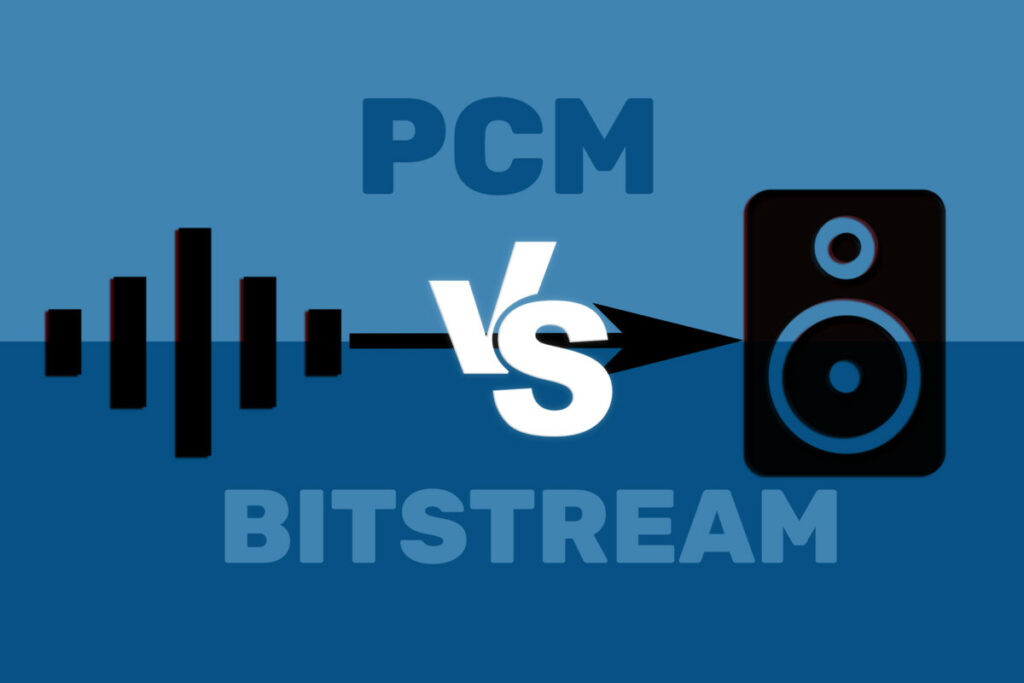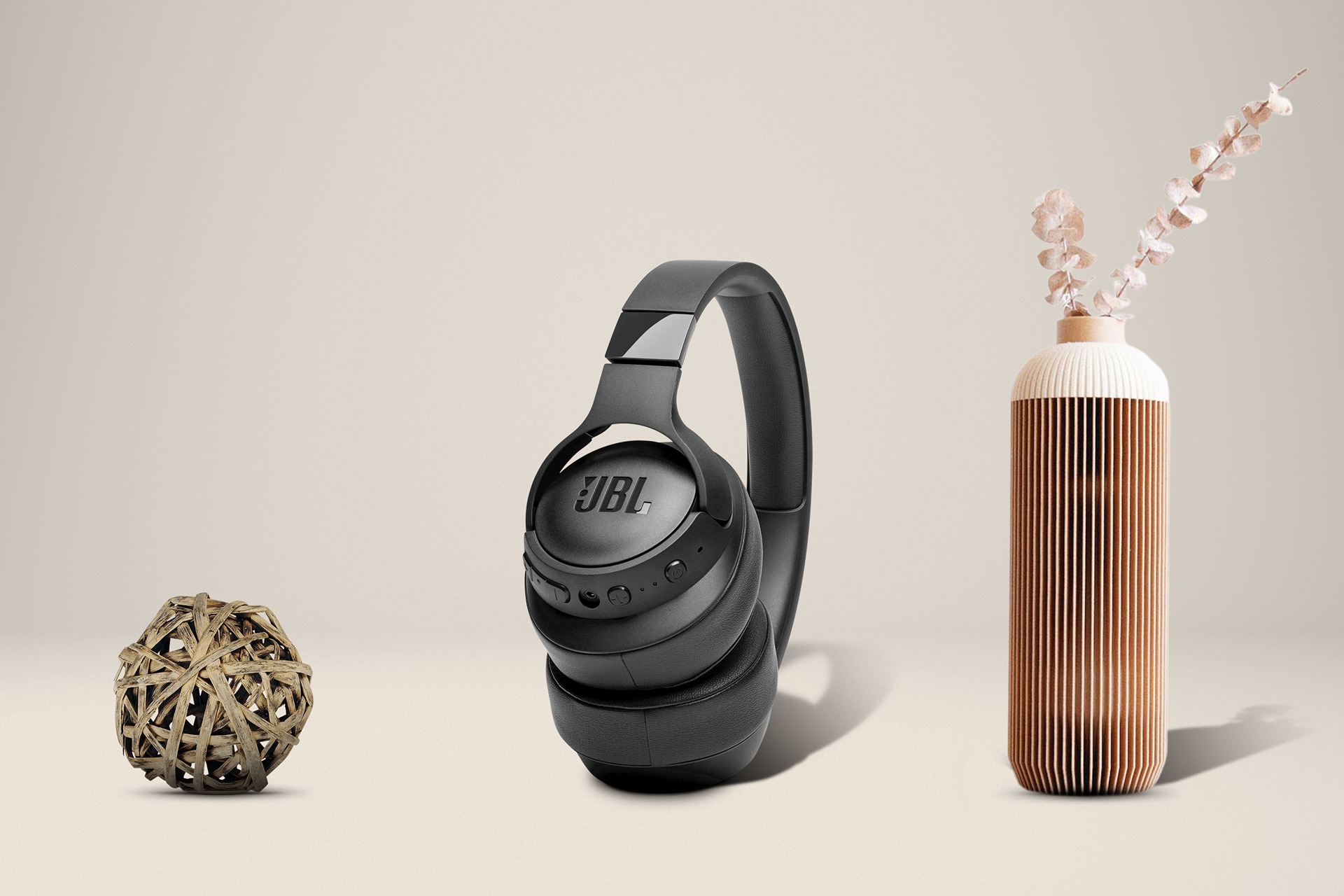
PCM and Bitstream are two audio formats that have become increasingly popular in recent years, but many people dont know what the key diferences between them are.
In this article, we will explore PCM and Bitstream and their respective benefits, as well as some of the key differences between them. We will also provide tips for choosing which format is right for you. So lets get started!
Introducing PCM And Bitstream
I think it is important to first note an overview about both these audio formats, so you can have a better “mirror” and choose which one fits your needs!
PCM
PCM (Pulse Code Modulation) is the standard format for digital audio files. It encodes audio waveforms into a series of numbers, which are then stored as digital samples.
PCM ofers high-fidelity playback and can be used in nearly any audio aplication, including streaming services and consumer products. PCM requires more storage space than other formats, making it more expensive than some options.
Bitstream
Bitstream (or Bit Rate Audio) is a form of PCM that compreses audio data to save space. Bitstream takes PCM samples and reduces their size by removing redundant information.
This makes it easier to store larger files on smaler devices, like smartphones or tablets, which is deeply related to home theater systems overall such as the 7.1 home theater systems.
Bitstream also ofers high-fidelity playback, but because of its compresed format, the audio quality may not be as good as PCM.
PCM Vs. Bitstream: Main Comparison

PCM (Pulse-Code Modulation) and Bitstream (Dolby Digital or DTS) are two popular audio formats that are used to represent audio signals digitally. In this comparison, we’ll look at several specifications and the pros and cons of each format.
Sound Quality:
When it comes to sound quality, PCM is considered the superior format. It is a lossless format, which means that it retains all the audio information from the original source without any compresion. This results in a high-quality sound that is virtualy identical to the original analog signal.
Bitstream, being a compressed format, may result in some loss of audio quality, but the extent of this loss depends on the type of compression used. Some compresion formats like FLAC, ALAC, and WMA Lossless are known to provide good quality audio even after compression. By the way, you can convert FLAC to ALAC in some specific ways which should be definitely known.
Storage:
PCM requires a larger storage space compared to bitstream. As it retains all audio information, it requires more storage space to store the data.
Bitstream, being a compresed format, requires a smaller storage space as it only stores the compressed audio data. This can be an advantage for devices with limited storage capacity.
Bandwidth:
PCM requires more bandwidth compared to bitstream as it transmits all audio information. This means that it requires a higher data transfer rate to transmit the audio data.
Bitstream, being a compressed format, requires leser bandwidth as it only transmits the compressed audio data. This can be an advantage in cases where bandwidth is limited, such as streaming audio over the internet.
Compatibility:
PCM is compatible with all audio devices as it is a universal standard. This means that audio data encoded in PCM can be played on any device that has the capability to decode PCM data.
Bitstream compatbility depends on the type of compression used and the receiving devices ability to decode the compression format. For example, a device that is capable of decoding Dolby Digital will not be able to play audio data encoded in DTS.
Ease of Use:
PCM is simple to use as it does not require any special encoding or decoding. This makes it an ideal choice for users who want to keep things simple and straightforward.
Bitstream requires special encoding and decoding, which can be complicated for some users. Additionally, diferent devices may support different bitstream formats, making it important to choose the right format that is compatible with the device.
Latency:
PCM has a higher latency compared to bitstream as it involves more procesing. This means that there is a delay between the input signal and the output signal.
Bitstream has a lower latency as it involves lesser processing. This can be an advantage for aplications where low latency is important, such as gaming or video conferencing.
Dynamic Range:
PCM has a high dynamic range, which means that it can acurately represent a wide range of volume levels. This results in a rich and detailed sound.
Bitstream, being a compressed format, may have a lower dynamic range compared to PCM. This can result in a less detailed sound.
In conclusion, both PCM and Bitstream have their own advantages and disadvantages. PCM provides a high-quality sound and is compatible with all audio devices, but it requires more storage space and bandwidth.
Bitstream requires less storage space and bandwidth, but its sound quality and compatibility are dependent on the type of compresion used and the receiving device’s capabilities. The choice between PCM and Bitstream ultimately depends on the individuals needs and preferences.
In Short: Why Choose Any Of Them?

Before stating anything else, I want to share with you my own opinion on why should you choose these two audio formats, of course, based on everything I mentioned above!
PCM Benefits – Why Should You Choose PCM?
PCM is the highest quality digital audio format. PCM data contains all of the original audio samples, making it ideal for applications that require high-fidelity playback and acurate reproduction of sound which most of the time is done by different amplifiers such as the Monoblock amplifier.
PCM also does not sufer from any audible artifacts, so it’s perfect for studio recordings or live performances. PCM can be used in almost any audio aplication, including streaming services and consumer products.
Bitstream Benefits – Why Should You Choose Bitstream?
Bitstream offers many of the same benefits as PCM, but with some distinct advantages. As already mentioned, Bitstream compresses audio data to save space on a device; this alows you to store larger files on smaller devices like smartphones or tablets. Additionally, Bitstream ofers faster streaming speeds and lower latency, making it ideal for aplications that require real-time audio.
Conclusion
If you are a sound lover and understand one or two things about audio formats, I am pretty sure that you can easily understand the importance of PCM and Bitstream, and you can easily make a decision in between them, but still, the good thing is that they are both great in their own ways.
Yet again, knowing the differences will always help you to get the best out there and I hope this article provided you with clear information on what you can choice!
Composer & Audio Engineer
I’m a composer and audio engineer crafting sonic magic. Combining my skills in rhythm, harmony, and sound synthesis to create the ultimate auditory experience.





